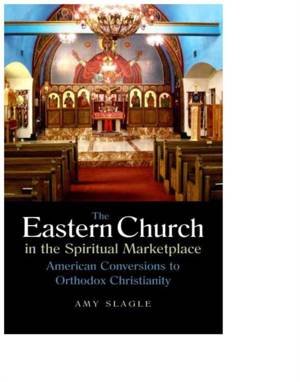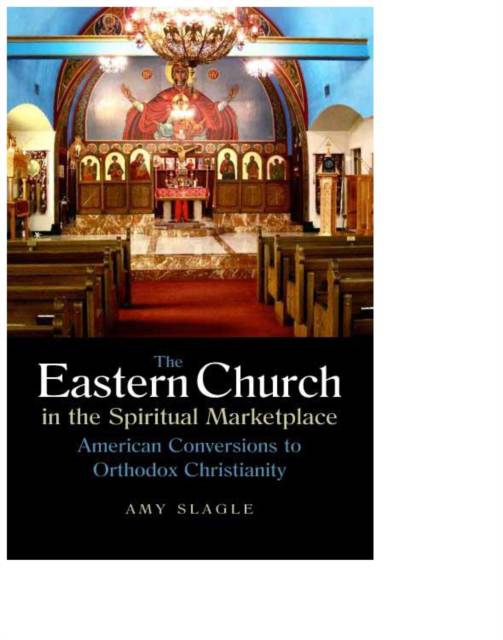
- Retrait gratuit dans votre magasin Club
- 7.000.000 titres dans notre catalogue
- Payer en toute sécurité
- Toujours un magasin près de chez vous
- Retrait gratuit dans votre magasin Club
- 7.000.0000 titres dans notre catalogue
- Payer en toute sécurité
- Toujours un magasin près de chez vous
The Eastern Church in the Spiritual Marketplace
American Conversions to Orthodox Christianity
Amy SlagleDescription
Like many Americans, the Eastern Orthodox converts in this study are participants in what scholars today refer to as the "spiritual marketplace" or quest culture of expanding religious diversity and individual choice-making that marks the post-World War II American religious landscape.
In this highly readable ethnographic study, Slagle explores the ways in which converts, clerics, and lifelong church members use marketplace metaphors in describing and enacting their religious lives. Slagle conducted participant observation and formal semi-structured interviews in Orthodox churches in Pittsburgh, Pennsylvania, and Jackson, Mississippi. Known among Orthodox Christians as the "Holy Land" of North American Orthodoxy, Pittsburgh offers an important context for exploring the interplay of Orthodox Christianity with the mainstreams of American religious life. Slagle's second round of research in Jackson sheds light on the American Bible Belt where over the past thirty years the Orthodox Church in America has marshaled significant resources to build mission parishes.
Relatively few ethnographic studies have examined Eastern Orthodox Christianity in the United States, and Slagle's book fills a significant gap. This lucidly written book is an ideal selection for courses in the sociology and anthropology of religion, contemporary Christianity, and religious change. Scholars of Orthodox Christianity, as well as clerical and lay people interested in Eastern Orthodoxy, will find this book to be of great appeal.
Spécifications
Parties prenantes
- Auteur(s) :
- Editeur:
Contenu
- Nombre de pages :
- 215
- Langue:
- Anglais
- Collection :
Caractéristiques
- EAN:
- 9780875806709
- Date de parution :
- 01-09-11
- Format:
- Livre broché
- Format numérique:
- Trade paperback (VS)
- Dimensions :
- 152 mm x 226 mm
- Poids :
- 385 g

Les avis
Nous publions uniquement les avis qui respectent les conditions requises. Consultez nos conditions pour les avis.






